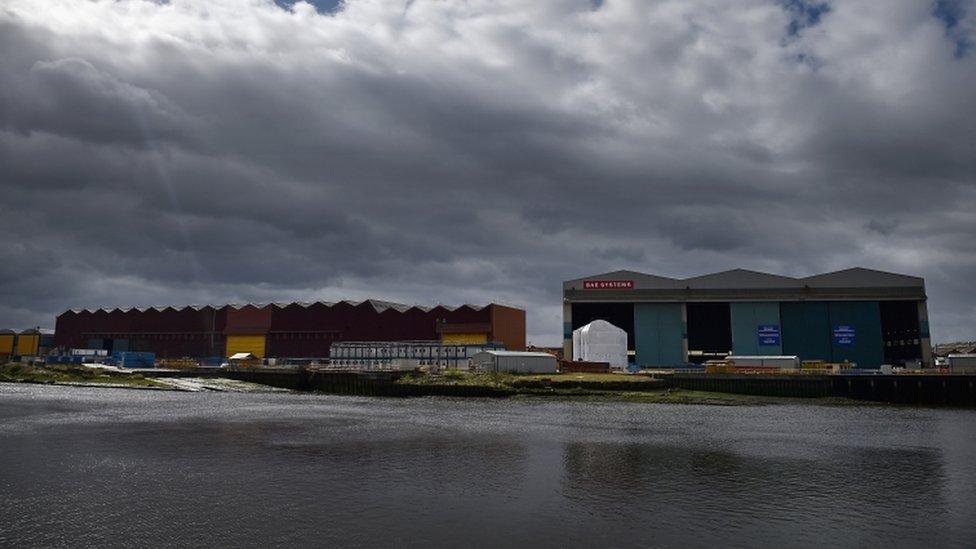Naval shipbuilding report calls for BAE competition
- Published
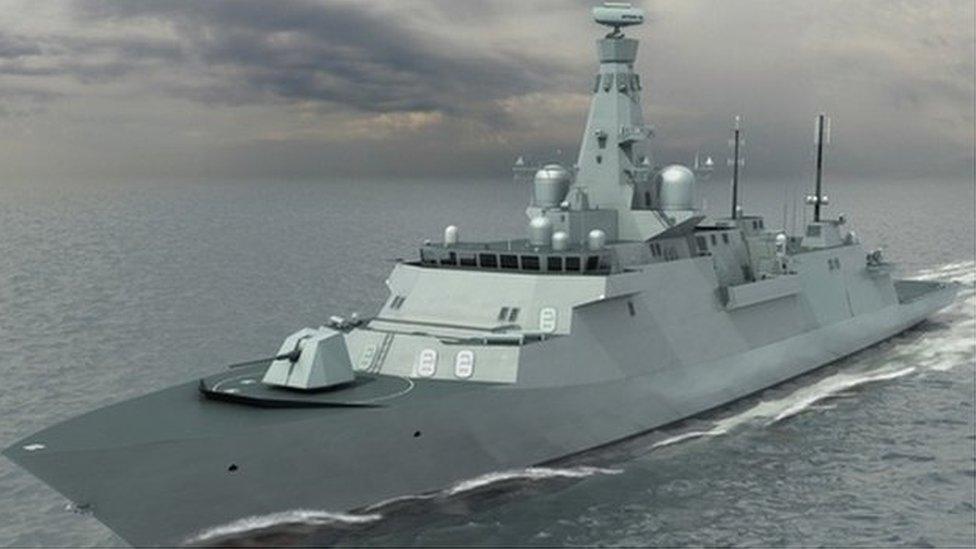
A Type 26 frigate of the class which from next summer will be built on Clydeside
A review has recommended removing BAE Systems' monopoly on shipbuilding for the Royal Navy.
It was announced earlier this month that the company's two yards on the Clyde would build eight larger Type 26 frigates.
The review, by leading businessman Sir John Parker, external, calls for future contracts to be put out to wider tender.
Downing Street has insisted Scotland would continue to play a central part in delivering new warships.
Rosyth in Fife is also one of six shipyards across the UK currently involved in the £6.2bn project to construct two aircraft carriers for the Royal Navy.
'Afraid of competition'
However, the contract to build smaller general purpose Type 31 frigates has yet to be announced.
Sir John, chairman of mining giant Anglo American, said removing BAE Systems' monopoly would increase productivity and reduce the time spent on construction.
He was tasked with examining how British naval shipbuilding could be kept sustainable and increase exports.
Sir John told the Good Morning Scotland programme that "no-one should be afraid of competition".
He added: "The whole idea is to expand the naval shipbuilding output in the country and also at the same time there has been quite a renaissance in a number of yards around the country that have actually taken part in supplying blocks to the aircraft carriers being built at Rosyth.
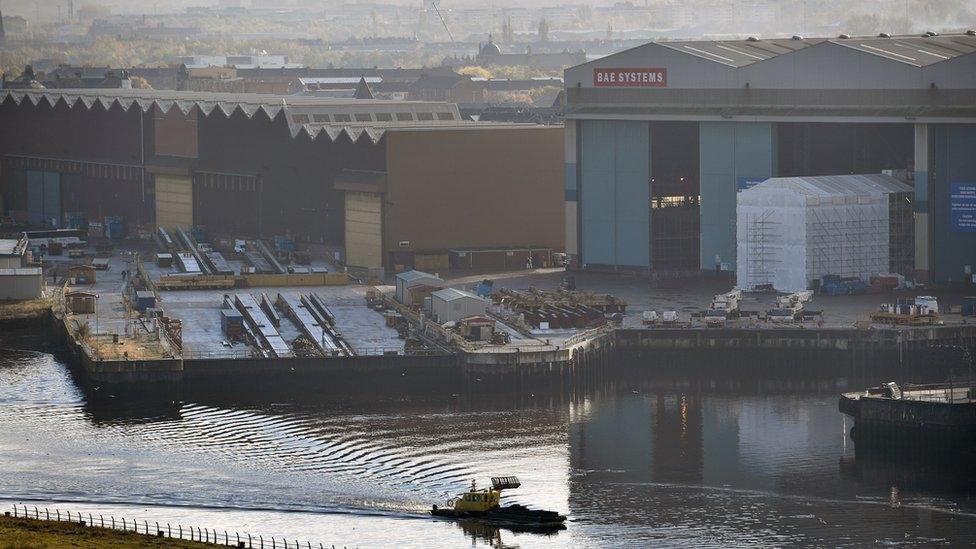
Earlier this month, it was announced that eight larger Type 26 frigates would be built at BAE's Clyde yard
"But I think as far as Scotland's concerned, the big prize - I call it a double first prize - is that my report has recommended that the whole series of Type 26 frigates should be built in Govan on the Clyde.
"This will be the largest single contract for naval ships this decade and will see the yard through into the early 2030s. So this is a huge prize that is going to Scotland."
Sir John said the new Type 31e general purpose frigates would be designed specifically in a "modular way" for export.
'Pressing problem'
Sir John said it was incumbent on the Clyde yards to use their "firm workload" to push forward modernisation of technology and advance digital engineering and productivity.
He said it needed to be "match-fit" so they would be the "yard of choice".
In his report, he said that Scotland's cutting-edge technology presented an opportunity to implement "modular construction" more widely: a process in which ship components were produced across the UK before being assembled at a central Hub
However, Gary Cook, the Scottish regional organiser for the GMB union, which represents workers on the Clyde, told the programme that while he broadly welcomed the review, it also failed to provide answers for the shipbuilding industry in Scotland.
He said: "It's what John Parker didn't say that concerns the joint unions."
"How are we going to get from where we are today to the hub that Sir John talks about in his interview.
"A central hub - that is years away. The immediate pressing problem is how do we get a continuation, a continuity of work into Rosyth and the other UK facilities?"
The union chief added: "£260m a year, 10,000 jobs - you just cannot rip that out of Scotland. The facilities won't be there for Sir John's vision of the future. We need continuity."

Defence Secretary Sir Michael Fallon said there would be a 'new focus on exports'
Welcoming the report, Defence Secretary Sir Michael Fallon said it provided an "ambitious vision" of naval shipbuilding in the UK.
He added: "This report will inform our National Shipbuilding Strategy to match the needs of the Royal Navy with the ability to design and build efficiently, maintain skills, and maximise export opportunities.
"This will ensure a strong naval shipbuilding sector and help deliver an economy that works for everyone."
'Commercial shipbuilding'
SNP defence spokesman Brendan O'Hara said the report signalled another delay to the publication of the UK government's National Shipbuilding Strategy and would cause concern to workers.
He said: "These concerns about another Westminster muddle will only be heightened by some of the recommendations in this report with clear implications for yards on the Clyde in particular.
''When Tory Defence Secretary Sir Michael Fallon says in relation to shipbuilding there needs to be a "rebalancing" in Britain's industrial strategy - that will cause great concern to workers who have been let down by Tory broken promises so many times. He needs to explain -in detail - what that means and he needs to explain it now."
Scottish Labour's Westminster spokesman Ian Murray said that although the construction of the Type 26 frigates secured the Clyde's future until the 2030s, more was needed to see the Scottish shipbuilding industry beyond that.
He said: "The UK and Scottish governments need an industrial strategy that invests in defence and commercial shipbuilding on the Clyde to increase opportunities for shipbuilding.
"Promises were made to the workers on the Clyde and we will not allow the government to go back on them."
The UK government will publish its formal response to Sir John's report in the form of its National Shipbuilding Strategy in the spring.
- Published21 November 2016
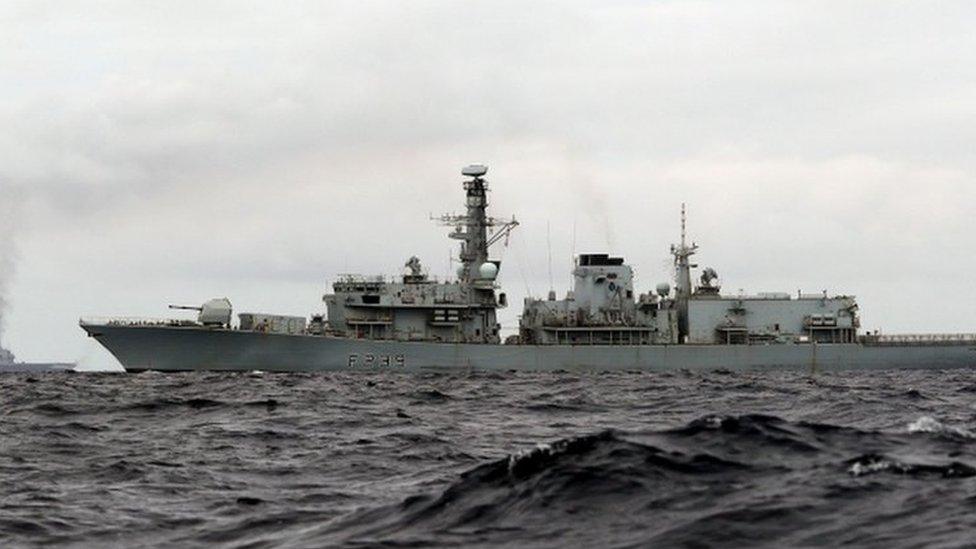
- Published4 November 2016
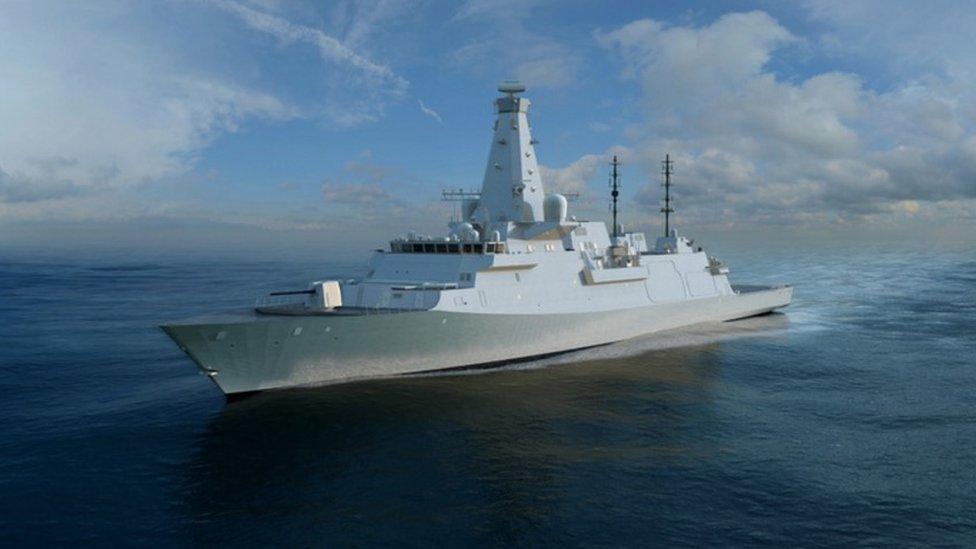
- Published4 November 2016
- Published7 June 2016

- Published25 April 2016

- Published25 April 2016
